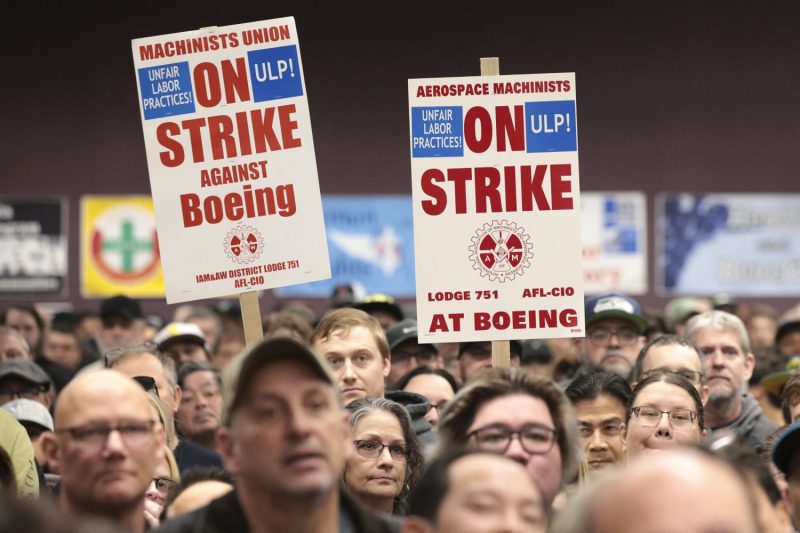
Machinists Strike: Boeing Workers Reject New Labor Deal, Prolonging Standoff
Boeing Machinists Reject New Labor Contract, Extending Strike
The recent rejection by Boeing machinists of a new labor contract has led to an extension of their strike, highlighting a deep divide between the company and its workforce. The contentious negotiations between the International Association of Machinists and Aerospace Workers (IAM) District 751 and Boeing have been ongoing for weeks, with key issues such as pay raises, healthcare benefits, and job security at the center of the dispute.
Boeing, one of the world’s largest aerospace manufacturers and a major employer in the Pacific Northwest, had proposed a new contract that included a modest pay increase but also sought increased healthcare costs and changes to retirement benefits. The IAM members, however, were not satisfied with the terms put forth by the company, feeling that they did not adequately address the concerns of the workforce. This rejection of the contract by an overwhelming majority of machinists has led to the continuation of the strike, further disrupting Boeing’s operations.
The extension of the strike has significant implications for both Boeing and the machinists. Production delays and disruptions in supply chains may affect the company’s ability to deliver aircraft to its customers, potentially leading to financial losses and damage to its reputation. On the other hand, the striking machinists are facing economic hardship as they continue to picket outside Boeing facilities, enduring uncertainty about their future employment and financial stability.
The rejection of the contract and the extension of the strike also reflect broader issues within the aviation industry, where labor disputes and tensions have been on the rise in recent years. As aerospace companies seek to cut costs and increase efficiency, employees are often left feeling marginalized and undervalued. The case of the Boeing machinists underscores the need for a more collaborative and equitable approach to labor relations in the industry.
Moving forward, it is crucial for both Boeing and the IAM to engage in open and constructive dialogue to reach a mutually acceptable agreement. Addressing the concerns of the machinists regarding pay, benefits, and job security will be essential to resolving the current impasse and ensuring a more harmonious relationship between the company and its workforce. By prioritizing transparency, fairness, and respect for workers’ rights, Boeing can work towards rebuilding trust and cooperation with its employees, ultimately benefiting both the company and its stakeholders.